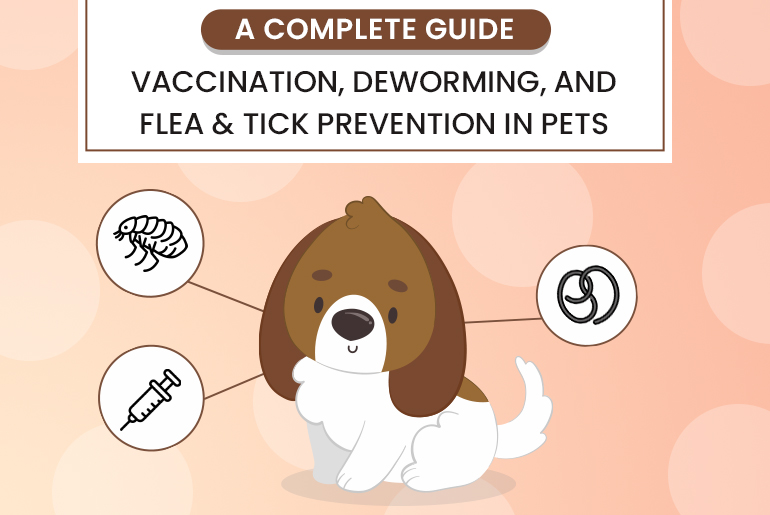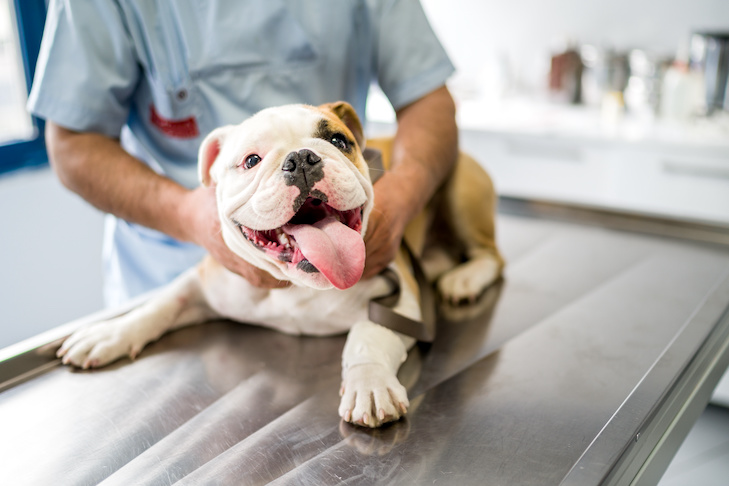The duration of rabies shots in dogs depends on the type of vaccine administered. Some vaccines are effective for one year, requiring an annual booster shot, while others last for three years, reducing the frequency of boosters.
When it comes to rabies shots for dogs, the duration of effectiveness varies based on the type of vaccine used. Certain vaccines provide protection for one year, necessitating an annual booster shot, while others last for three years, reducing the frequency of required vaccinations.
Ensuring your dog receives the appropriate rabies shots is crucial to their overall health and well-being. Understanding how long these shots remain effective can help you determine the necessary vaccination schedule for your four-legged friend.

Credit: www.polltopastern.com
Understanding Rabies Shots For Dogs
Rabies shots for dogs can last either one year or three years, depending on the type of vaccine they receive. While some states require annual vaccinations, most only require a booster every three years. It’s important to consult with your veterinarian to determine the appropriate vaccination schedule for your dog.
What Is Rabies?
Rabies is a viral disease that affects the central nervous system of mammals, including dogs. It is transmitted through the saliva of an infected animal, typically through a bite or scratch. Once the virus enters the body, it attacks the nervous system, leading to severe brain inflammation and, ultimately, death if left untreated.
Importance Of Rabies Vaccination For Dogs
The importance of rabies vaccination for dogs cannot be overstated. Rabies is a deadly disease that poses a serious threat to both dogs and humans. Vaccinating your dog against rabies not only protects their health but also helps prevent the spread of the disease to other animals and humans.
Different Durations Of Rabies Vaccines
When it comes to the duration of rabies vaccines for dogs, there are two main options: one-year vaccines and three-year vaccines. Let’s dive into each of these durations:
One-Year Vaccines
One-year rabies vaccines provide protection against the virus for a period of one year. After this time, your dog will need to receive a booster shot to maintain their immunity. It is essential to adhere to the recommended schedule and not let the vaccination lapse to ensure your dog’s continuous protection against rabies.
Three-Year Vaccines
On the other hand, three-year rabies vaccines are designed to provide protection for a longer period. With this type of vaccine, your dog will only need a booster shot every three years to maintain their immunity. These vaccines are more popular among dog owners because they reduce the frequency of vet visits and the stress associated with vaccinations.
It’s important to note that the actual duration of immunity may vary depending on local regulations and laws. Some states or countries may require annual vaccinations regardless of the duration of the vaccine. Always consult with your veterinarian to ensure you are in compliance with local regulations and providing the best protection for your dog.
In conclusion, understanding rabies shots for dogs is crucial for ensuring the health and safety of your furry friend. Vaccinating your dog against rabies not only protects them from this deadly disease but also helps protect the community as a whole. Whether you opt for a one-year or three-year vaccine, regular vaccinations are essential to maintain your dog’s immunity and comply with local regulations. Remember, prevention is always better than treatment when it comes to keeping your beloved pet safe and healthy.

Credit: www.splootvets.com
Frequency Of Rabies Shots
Rabies shots for dogs can last either one year or three years, depending on the type of vaccine. Some vaccines require an annual booster shot, while others only need a booster every three years. It is important to check with your veterinarian to determine the frequency of rabies shots for your dog.
Yearly Rabies Shots
Rabies shots are crucial for the health and safety of your furry friend. The frequency of these shots depends on the type of vaccine you choose. There are rabies vaccines that are effective for one year, which means your dog will need a booster shot annually. These yearly rabies shots ensure that your dog is protected against this deadly virus on an ongoing basis.
Three-year Rabies Shots
If you want a longer interval between vaccinations, you can opt for the three-year rabies vaccine. As the name suggests, this vaccine provides protection for three years. With this option, your dog will only need a booster shot every three years. This is a popular choice among pet owners as it reduces the frequency of veterinary visits for rabies shots while still ensuring the safety of your dog.
Factors Affecting Rabies Shot Frequency
Several factors can influence how often your dog needs rabies shots. These include local regulations, your dog’s age, and their overall health. Some states may have specific requirements for rabies vaccinations, including annual shots regardless of the vaccine type. It’s essential to stay up to date with the regulations in your area to ensure compliance.
Additionally, the age of your dog plays a role in determining the frequency of rabies shots. Puppies typically receive their initial rabies vaccine at around 12 weeks of age, followed by booster shots as recommended by your veterinarian. As your dog ages, the frequency of vaccinations may change.
Finally, your dog’s overall health can impact how often they need rabies shots. Dogs with certain medical conditions or compromised immune systems may require more frequent vaccinations to maintain adequate protection against the virus.
Consult with your veterinarian to determine the most appropriate vaccination schedule for your dog based on these factors. They will consider your dog’s individual needs and the regulations in your area to ensure your furry friend remains safe from rabies.
Managing Overdue Rabies Shots
In most states, including Austin, Texas, dog owners are required to give their pets a rabies shot every three years. This ensures that dogs are protected from the disease and comply with local regulations. The rabies vaccine can last either one year or three years, depending on the type of vaccine administered.
#### Managing Overdue Rabies Shots##### Consequences of Overdue Rabies ShotsWhen it comes to rabies shots for dogs, it is crucial to follow the recommended vaccination guidelines. Overdue rabies shots can have serious consequences for both your furry friend and yourself. Rabies is a fatal disease that can be transmitted to humans, and failure to keep up with your dog’s rabies vaccination schedule puts both of you at risk. In addition to the potential threat to public health, there may be legal consequences as well. Many states have strict regulations regarding overdue rabies shots, and penalties can include fines or even the seizure of your pet.##### Vaccination Guidelines for Overdue DogsIf your dog’s rabies shot is overdue, it’s important to act quickly to bring them up to date on their vaccination. Vaccination guidelines for overdue dogs will depend on the specific state laws and regulations, as well as the duration of time since the last dose. Typically, if the rabies shot is only a few days or weeks overdue, a single booster shot may be sufficient to ensure your dog’s protection. However, if it has been several months or longer, your dog may need to restart the entire vaccination series.Here are some general guidelines to follow when managing overdue rabies shots for your dog:1. Consult with your veterinarian: Schedule a consultation with your veterinarian to evaluate your dog’s specific situation and determine the best course of action. They will consider factors such as the duration of the overdue period and your dog’s overall health.2. Follow state regulations: Familiarize yourself with the rabies vaccination laws in your state. Some states may require a specific waiting period after a missed dose, while others may have more lenient guidelines. Adhering to these regulations is crucial to avoid any legal consequences.3. Keep records: Keep accurate records of your dog’s vaccination history. This includes the dates of previous vaccinations and boosters. Having this information readily available will help ensure that your dog receives the appropriate vaccinations in a timely manner.##### Administering Rabies Shots at HomeIn certain circumstances, it may be possible to administer rabies shots at home. This option can be convenient and cost-effective for dog owners, especially if regular veterinary visits are difficult due to location or other reasons. However, it is important to seek guidance from your veterinarian before attempting this. They can provide instructions on the proper technique, dosage, and timing of the shot.Here are a few things to keep in mind if you are considering administering rabies shots at home: – Obtain the necessary supplies: You will need to obtain the rabies vaccine from a licensed veterinarian. Make sure to follow their instructions for storing and handling the vaccine properly.– Follow safety protocols: Administering any medication or vaccine at home requires strict adherence to safety protocols. Ensure a clean and sterile environment, and use proper techniques to prevent injury to yourself or your dog.– Report the vaccination: After administering the rabies shot, report it to your local animal control or public health department. This is important for keeping accurate records and maintaining compliance with state regulations.Remember, while administering rabies shots at home can be convenient, it should only be done under the guidance of a veterinarian. Regular veterinary check-ups are still essential to monitor your dog’s overall health and ensure they receive the necessary care.By taking proactive steps to manage overdue rabies shots, you are prioritizing your dog’s health and well-being. Following vaccination guidelines and seeking professional advice will help ensure that your furry friend remains protected against this potentially deadly disease.
Credit: www.canadapetcare.com
Frequently Asked Questions On How Long Are Rabies Shots Good For In Dogs
How Often Does My Dog Need A Rabies Shot?
Your dog needs a rabies shot either annually or every three years, depending on the type of vaccine you choose. Some vaccines are good for one year, requiring an annual booster, while others last three years, only needing a booster every three years.
Is The Rabies Vaccine For 1 Year Or 3 Years?
The rabies vaccine for dogs is available in two options. Some vaccines are effective for one year, requiring an annual booster shot. The more common option is a three-year vaccine, which means your dog only needs a booster every three years.
Do Dogs Need Rabies Shots Every Year?
Dogs do not need rabies shots every year. Some vaccines last for one year, while others last for three years. Your dog will only need a booster shot every three years if you choose the three-year vaccine option.
What Happens If My Dog Is Overdue For Rabies Shot?
If your dog is overdue for a rabies shot, it is important to get them vaccinated as soon as possible. Rabies shots are typically good for either one year or three years, depending on the type of vaccine. Check with your veterinarian to determine the best course of action for your dog.
Conclusion
Based on research, the duration of effectiveness for rabies shots in dogs varies. Some vaccines last for one year, requiring annual booster shots, while others are effective for three years. It is important to check your local regulations as some states may require annual vaccination regardless of the vaccine’s longevity.
Ensuring your dog is up-to-date on their rabies shots is crucial for their health and safety. Consult with your veterinarian to determine the appropriate vaccination schedule for your furry friend.



